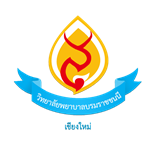The Effects of Changing Self-Care Behavior Program on Knowledge, Attitude and Self-care Behaviors of Opisthorchiasis Patients San Pa Tong District, Chiang Mai Province
Keywords:
Changing Self-Care Behavior Program, Knowledge, Attitude, Self-Care Behavior, OpisthorchiasisAbstract
The aim of this study was to investigate the effect of changing self-care behavioral program among 42 Opisthorchiasis patients who had low to moderate levels of knowledge, attitudes, and self-care behaviors. A 6-month self-care behavior modification program was provided to the participants in the study. The data was analyzed using paired sample t-test to compare knowledge, attitudes, and self-care behaviors scores before and after the behavior modification program.
The proportion of males to females was equal at 50% with mean age of 62 ± 6.25 years. The majority of them were married (81%), received the highest level of education at the elementary level (83.30%), working in agricultural occupations (31%) and an average monthly income of 3,033.33 baht. Based on data of living in the community for the past three years, it was found that 95.20 percent of people lived in the community. 85.70% of the public water sources are used for catching fish. 76.20% of the people eat fish in community water sources. The average scores of knowledge, attitudes, and self-care behaviors before receiving the program were 6.74 ±1.41, 2.23 ±0.35, and 2.56 ±0.22, respectively. After the program, the average scores were 8.10 ±1.10, 2.49 ±0.29, and 2.76 ±0.18, respectively. There were statistically significant differences in knowledge, attitude, and self-care behaviors scores between before and after receiving the changing self-care behavioral program (p-value= 0.001, 0.009, 0.001) respectively. The changing self-care behavioral program was found to be effective that improves knowledge, attitudes, and self-care behaviors scores among Opisthorchiasis patients. This program can be generalized to other patients with Opisthorchiasis in other areas.
References
กรมควบคุมโรค กระทรวงสาธารณสุข. (2557). แผนปฏิบัติการโรคพยาธิใบไม้ตับ. สืบค้น 20 เมษายน 2560, จาก http://www.opdcddc.org/document/document/meetingreport/2558.
กระทรวงสาธารณสุข. (2555). ยุทธศาสตร์ “กาจัดพยาธิใบไม้ตับ ลดมะเร็งท่อน้ำดี วาระคน อีสาน”. นนทบุรี: สำนักบริหารการสาธารณสุข สำนักงานปลัดกระทรวงสาธารณสุข กระทรวงสาธารณสุข.
กาญจนา ฮามสมพันส์. (2559). ผลของโปรแกรมการปรับเปลี่ยนพฤติกรรมการป้องกันโรคพยาธิใบไม้ตับของหัวหน้าครัวเรือน ตำบลบ้านฝาง อำเภอเกษตรวิสัย จังหวัดร้อยเอ็ด. วารสารวิชาการสำนักงานป้องกันควบคุมโรคที่ 7 ขอนแก่น, 23(2), 9-22.
กิจปพน ศรีธานี. (2560). ความรู้ เจตคติ และพฤติกรรมการป้องกันโรคพยาธิใบไม้ตับของประชาชนในตำบลลำคลอง อำเภอเมืองจังหวัดกาฬสินธุ์. วารสารมหาวิทยาลัยราชภัฏมหาสารคาม, 11(3), 23-29.
จุฬากรณ์ โสตะ (2561). ทำการศึกษาประสิทธิผลของสื่อการสอนพฤติกรรมการป้องกันพยาธิใบไม้ตับระหว่างสื่อ วีซีดี และคู่มือในนักเรียนประถมศึกษา. ขอนแก่น: คณะแพทย์มหาวิทยาลัยขอนแก่น.
เพ็ญนภา คงศิลา. (2558). ผลของโปรแกรมส่งเสริมการรับรู้การป้องกันการเกิดโรคพยาธิใบไม้ตับต่อความรู้และการรับรู้ภาวะสุขภาพในกลุ่มเสี่ยง. วารสารวิจัยทางวิทยาศาสตร์สุขภาพ, 10(2), 19-28.
บุปผชาติ ทัฬหิกรณ์. (2551). การประยุกต์ใช้เทคโนโลยีสารสนเทศในการเรียนการสอน. ปทุมธานี: สำนักงานพัฒนาวิทยาศาสตร์และเทคโนโลยีแห่งชาติ.
วีระพล วิเศษสังข์. (2558). โปรแกรมการปรับเปลี่ยนพฤติกรรมโดยแกนนำสุขภาพปรปะจำครอบครัวต่อการลดการเกิดโรคพยาธิใบไม้ตับในกลุ่มวัยแรงงาน ตำบลขะยูง อำเภออุทุมพรพิสัย จังหวัดศรีสะเกษ. วารสารวิชาการสำนักงานป้องกันควบคุมโรคที่ 7 ขอนแก่น, 24(3), 61-74.
สำนักงานสาธารณสุขจังหวัดเชียงใหม่. (2561). ระเบียนรายงานโรคหนอนพยาธิ. เชียงใหม่: กลุ่มงานควบคุมโรคติดต่อ สำนักงานสาธารณสุขจังหวัดเชียงใหม่, เอกสารอัดสำเนา.
อาภาพร เผ่าวัฒนา. (2554). การสร้างเสริมสุขภาพและป้องกันโรคในชุมชนการประยุกต์แนวคิดและทฤษฏีสู่การปฏิบัติ. กรุงเทพฯ: โรงพิมพ์คลังนานาวิทยา.
Anderson, L. W. et al. (2001). A Taxanomy for Learning, Teaching, and Assessing: A Revision of Bloom’s Taxanomy of Educational Objectives. USA: Addison Wesley Longman.
Cronbach, L. J. (1963). Educational Psychology. New York: Harcourt Brace And World, Inc. 68-70.

Downloads
Published
How to Cite
Issue
Section
License
1. บทความหรือข้อคิดเห็นใด ๆ ที่ปรากฏในวารสารวิจัยการพยาบาลและการสาธารณสุข ที่เป็นวรรณกรรมของผู้เขียน บรรณาธิการไม่จำเป็นต้องเห็นด้วย
2. บทความที่ได้รับการตีพิมพ์ถือเป็นลิขสิทธิ์ของ วารสารวิจัยการพยาบาลและการสาธารณสุข








